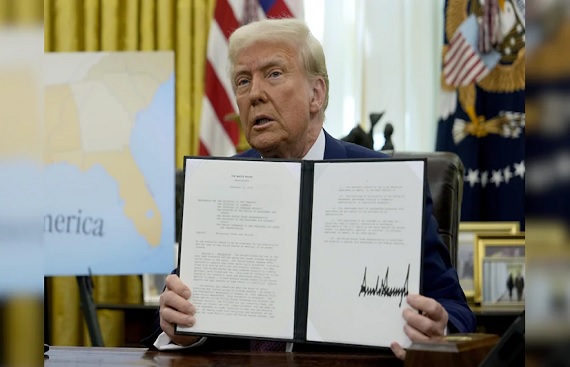Trump's 25% Auto Tariff Roils Global Markets, Indian Auto Stocks Slide
By
siliconindia | Thursday, 27 March 2025, 07:19 Hrs

US President Donald Trump's move to impose a 25% tariff on all auto imports has set the global automobile industry in turmoil, with Indian companies also getting affected. Although direct exports of vehicles by India to the US are scarce, the indirect effect through international supply chains is immense, resulting in a drubbing of auto stocks in the first few hours of trading. Tata Motors stock declined more than 5%, Eicher Motors lost close to 2%, Hyundai by 1.7%, Samvardhana Motherson plunged 6.4%, Sona BLW slipped 4.4%, and Balkrishna Industries lost 3.4%. The large-cap Nifty Auto index shed 1.09%, having traded at 21,505 during morning trading.
India shipped auto parts valued at $6.79 billion to the US during FY24, whereas US imports totaled $1.4 billion, which was levied a 15% duty. Even though the nation has negligible direct car exports to the US, the high tariffs are likely to disturb supply chains. Tata Motors, which indirectly does not sell cars to the US, would likely go through its British unit Jaguar Land Rover (JLR), which accounts for 22% of sales in the US. The rise in import duties on UK-origin vehicles will fall on JLR's bottomline, and investors are concerned it could lead to price increases and loss of market share.
Auto component makers are also under pressure as international automakers seek to transfer cost rises to suppliers. Sona BLW Precision Forgings, with 66% of its top-line coming from the US and Europe, can face margin stress. To that end, the company is pushing for growth in China, Japan, and South Korea, looking to these countries to generate more than 50% of its top-line over the next five years. While that, however, has been a big worry for investors in India, Samvardhana Motherson International Ltd (SAMIL), one of the major suppliers to Tesla and Ford, is somewhat protected from the tariff effect by its US and European manufacturing facilities. This strategic footprint enables SAMIL to absorb cost pressures better than some of its competitors.
Outside India, the tariff announcement shook global equity markets. The shares of major Japanese automakers Toyota, Nissan, and Honda declined by 3% to 3.7%. South Korea's Hyundai dipped 3.4%, and the Nikkei 225 index lost 1.1% due to sagging investor sentiment. Major automaker stocks in the US declined during after-hours trading, and US equity index futures indicated a weaker market opening. The S&P 500 benchmark index fell by 1.1% prior to Trump's announcement, recording more than a 4% decline for March, its worst monthly performance in almost a year.
Trump's action has heightened uncertainty in an already troubled global auto sector, which is facing volatile demand and supply chain disruptions. The Center for Automotive Research says the tariffs would increase vehicle prices for consumers and risk job losses, as the sector relies heavily on imported parts. Car prices are expected to increase by thousands of dollars, forcing automakers to rethink production plans and sourcing decisions.
As the global trade environment changes, Indian automakers and component manufacturers need to move quickly to offset long-term threats. Firms will probably seek market diversification, increase local manufacturing, and rationalize costs to navigate the changing situation. The capacity to stay nimble in the face of protectionist measures will be instrumental in shaping the industry's future direction.
